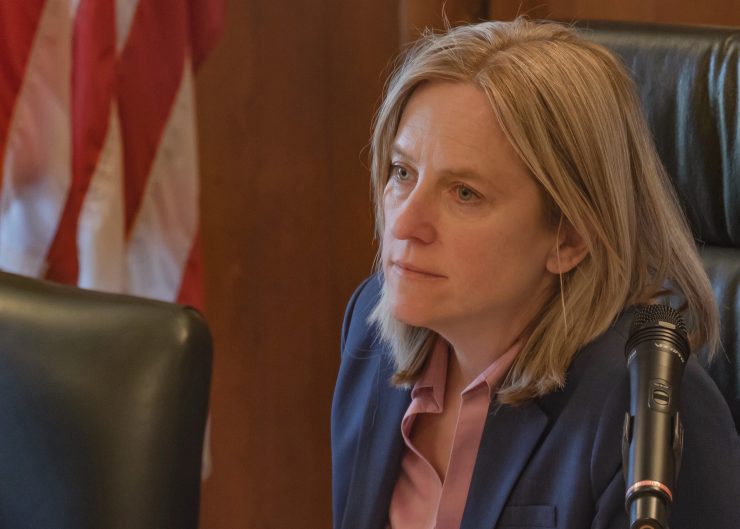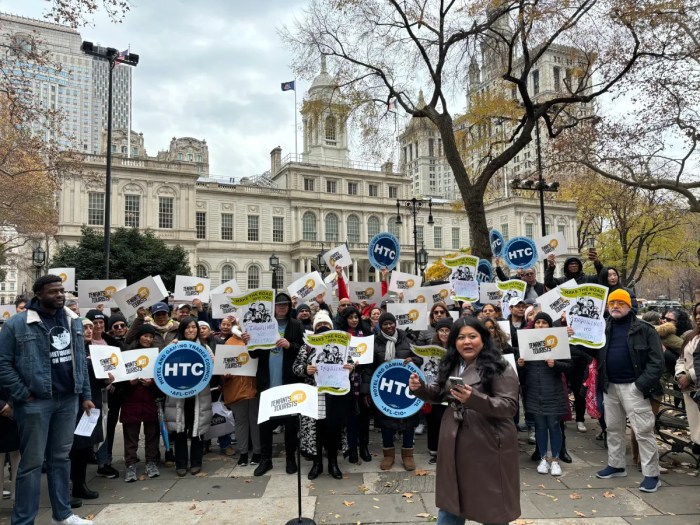As December draws to a close, Melinda Katz is getting ready to trade jobs in Queens — moving from her borough president’s office to the district attorney’s office.
On Jan. 1, Katz will become the first new Queens DA in 28 years; the late Richard Brown held the office from 1991 until his death in May of this year. Since Brown’s demise, John Ryan has served as the borough’s acting chief prosecutor.
But what policy changes is Katz planning for her new role?
A conviction integrity unit was one policy she said she would still implement on Monday’s episode of the Brian Lehrer Show on WNYC – an apparatus she plans to wield in big cases where public doubt around decisions has been made clear.
“There is such a thing as justice for defendants and justice for victims. I think during the campaign it became such a misnomer; people thought it was one or the other,” Katz said. “But it’s also the attitude of the assistant district attorneys and district attorney who heads the office.”
Lehrer asked if the proposed conviction integrity unit would consider the case of Chanel Lewis, who was found guilty in the spring of murdering Howard Beach jogger Karina Vetrano in August 2016.
Exculpatory evidence revealed in the late stages of Lewis’ trial claimed DNA swabs and other evidence suggested to some that Lewis did not fit the description of the perp.
Deputy Chief Michael Kemper said at several meetings that the perps initially sought for the Vetrano murder were two “jacked up” white men from Howard Beach, and another police official repeatedly called for the DNA swabbing of all white men in the area, according to an anonymous letter from an NYPD source.
But Lewis, whose DNA was linked nearly six months after the murder to evidence found at the crime scene, was convicted, and is now serving a sentence of life without parole.
“I believe we’re going to look at this and see how the conviction integrity unit feels about this case as well, but it is ongoing,” Katz responded to Lehre Monday.
Amid rumors, reported by Lehrer, that many of Katz’ new chief assistants have been sourced from Brown’s old staff, the incoming DA brushed off suspicion that Brown’s less-than-progressive approach to criminal justice would live on.
“At the end of the day, it’s ultimately my policies or no policy – or the highway,” Katz said.
With new discovery laws going into effect in 2020, DA’s will no longer be able to withhold evidence from the defense while building a case. This was a reform pushed by many of the candidates in the seven person field in the Democratic primary, including Tiffany Cabán who nearly upset Katz’ presumptive victory as the county party choice.
Katz announced that she will implement a policy in the Queens DA’s office that only gave defendants five days to waive their right to a grand jury, taking the opportunity to plea bargain out of the equation after that period.
“[Defendants won’t] have to waive [their] 180.80 rights. The constitutional rights to make sure that you have speedy grand jury to make sure you are indicted in a timely fashion,” Katz said. “When you get arrested for a felony and you couldn’t get the grand jury within five days and you waived your right to have that, it really tied the hands of the attorneys to be able to plea, to be able to negotiate and to be able to talk about how we end up in a fair and just way.”
Bail reform also takes effect on Jan. 1 and Katz said the office is already prepared for the change which will no longer require defendants to pay up.
Pre-charge diversion and other jail alternatives will be offered, Katz said, eliminating the need detentions and bail.
This story first appeared on amny.com.




































